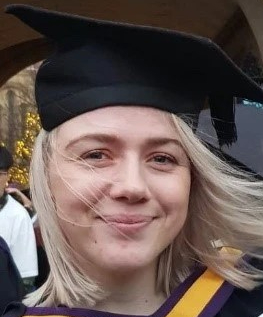The Development and Humanitarianism pathway brings together complementary sets of interdisciplinary collaboration, spanning not only social sciences but also medical and environmental science.
Programmes eligible for NWSSDTP funding
The NWSSDTP does not fund standalone Master’s programmes. Master’s programmes listed below can only be funded as part of a Master’s + PhD Studentship.
Lancaster University
University of Liverpool
University of Manchester
- MA Humanitarian and Conflict Response
- MSc Research Methods with International Development
- MSc Environmental Governance
- PhD Humanitarianism and Conflict Response
- PhD Development Policy and Management
For information on how to apply for funding, please visit our How to Apply page.
Pathway Representatives
Contact details for Development and Humanitarianism Pathway Representatives at each institution can be found here: https://nwssdtp.ac.uk/about/contact-us/pathway-leads/.
Current Development and Humanitarianism NWSSDTP students

Jack Hemingway (2018 Cohort)
- Lancaster University
- Weblink: https://www.linkedin.com/in/jack-hemingway-5b1997101
- Email: j.hemingway@lancaster.ac.uk
Groundwater Governance in South Africa: Domestic and Transboundary Governance, and Preparedness for Hydraulic Fracturing
The project will be exploring the groundwater governance arrangements of South Africa, particularly surrounding the developing unconventional oil and gas industry in the country. Using the ecologically pristine Karoo region as a study site, an evaluation of the institutional preparedness for hydraulic fracturing will be conducted, focussing on legislation, policy, stakeholders, and knowledge, information and science.

Anna Thurlbeck (2020 Cohort)
- University of Manchester
- Email: anna.thurlbeck@manchester.ac.uk
To what extent do ideational and socio-political factors become embedded in formal fiscal federal institutions over time and how do these factors shape distributive outcomes?
This research project will examine the present allocation of federal revenue amongst states in Nigeria with the main objective being the analysis of the socio-political and historical forces underlying the fiscal federalist system and the degree to which these forces shape formal redistributive processes.

Laila Zulkaphil (2022 Cohort)
- University of Manchester
- Email: laila.zulkaphil@postgrad.manchester.ac.uk
Innovative Financing for Humanitarian Aid: Implications of Using Impacts Bonds for Humanitarian Actions
In the context of an increasing humanitarian funding gap, Laila’s research examines impact bonds as an innovative humanitarian financing mechanism. Theoretically, the research analyses how the use of such impact investing affects the meaning of humanitarianism as well as humanitarian principles and ethics. Practically, the research explores whether and under what circumstances impact bonds are suitable for financing humanitarian actions.

Cara Westerberg Mattu (2021 Cohort)
- University of Liverpool
- Weblink: https://www.linkedin.com/in/cara-mattu-48761b18b/
- Email: sgcmattu@liverpool.ac.uk
Indigenous Future-making Versus the Westminster-modelled State: Exploring the Joys, Pains, and Dreams of Maya Women and Youth (on their terms)
My research will raise awareness of realities lived by Maya women and youth residing in the Toledo District, southern Belize, on their terms, by casting light on institutional barriers they face vis-à-vis pursuing Maya definitions of health, wellbeing, and autonomy. I aim to highlight the political agency of women and youth by illustrating their joys, dreams, and struggles via a desire-based research design that includes creative ethnographic-style community-based participatory action research practice.

Natalie York (2022 Cohort)
- University of Manchester
- Weblink: https://www.linkedin.com/in/natalie-york-23075912b/
- Email: Natalie.york@manchester.ac.uk
Can biocultural diversity improve conservation outcomes for people and nature? A case study of central Kenya’s conservation landscape.
My research explores how different conservation approaches across central Kenya incorporate biocultural diversity protection, including the challenges and opportunities that different conservation spaces create for biocultural diversity, and how integrating biocultural diversity into conservation can contribute to achieving global conservation outcomes. My project collaborates with the Inclusive Conservation Initiative being rolled out by IMPACT in central Kenya.
Development and Humanitarianism NWSSDTP Alumni

Margot Tudor (2017 Cohort)
- Formerly University of Manchester
- Weblink: https://margottudor.wordpress.com/
- Email: M.Tudor@exeter.ac.uk
Blue Helmet Bureaucracy: Peacekeeping as Colonial Ambition, a Lesson in Governance, and the Exploitation of ‘Humanitarianism’
This project historicised United Nations peacekeeping interventions in post-colonial contexts. It investigated how these missions provided legitimate environments for UN staff to direct the design of sovereignty in newly independent or decolonising territories. It challenged the concept of the UN as a homogenous humanitarian agency and demonstrated the divisive organisational anxieties bound up in the development of the post-colonial international order.
 North West Social Science Doctoral Training Partnership
North West Social Science Doctoral Training Partnership